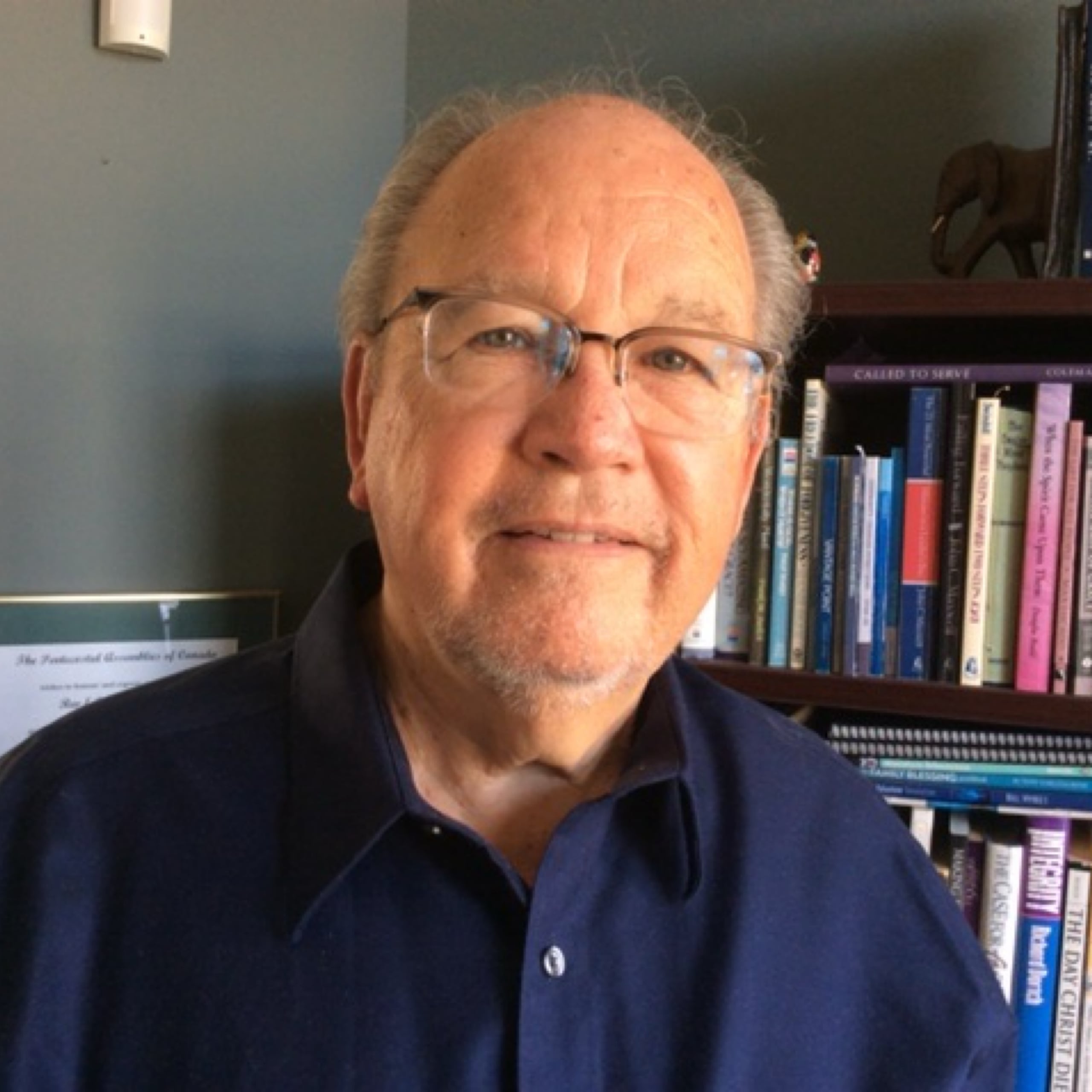Let me say right at the beginning, people all around us, both inside and outside of the church, can suffer from mental and emotional struggles. In fact, it’s very possible that at one time or another we all have experienced some of the key symptoms related to mental health challenges. It’s a very serious topic and must never be dealt with lightly or carelessly, and never spoken of in a flippant, offhanded way. Never!
Secondly, I need to make full disclosure that I am not an expert in this area of health. I have no special training whatsoever, and actually, I’m feeling quite vulnerable to even be writing about this topic. I am not qualified to deal professionally with the symptoms of mental health challenges; and any “cures” that I might offer are done so in the sole realm of biblical teaching and what is found on this subject in the Holy Scriptures. But that being said, just as we would seek professional help from our medical doctors if we were experiencing physical illness, and think nothing of it, similarly, if we’re faced with mental health challenges we should not hesitate to seek professional help from those professionally qualified to deal with the symptoms of mental and emotional needs. And here’s why.
The Bible teaches that humans are “tripartite beings”. That simply means that God made us with three essential parts, body, soul, and spirit. And the really good news in this study is that He absolutely cares about all three, our spiritual well-being, our physical well-being, and our mental and emotional well-being.
There are many, many accounts in the Bible about people who loved God passionately, who were followers of His, yet suffered from mental and emotional distress from time to time. These names you will easily recognize, and the one common denominator they all dealt with on occasion was mental and emotional health challenges. Moses, King David, Jonah, the Apostle Paul, Elijah, all came to times in their lives that were very dark and full of despair. This list is but a short list of Biblical characters who at times wanted to die instead of live.
One of the classic examples of someone struggling with their mental health is found in the Old Testament in the book of 1 Kings 19. I encourage you to read this chapter and discover for yourself the turmoil that this man of God went through and how his Lord delivered him. Elijah goes from being used in a miraculous way to defeat 450 prophets of Baal, to running for his life because of the evil Queen Jezebel. Elijah was not only used by God to destroy the Baal prophets, but he prayed on a cloudless day for rain and a great torrent of rain fell thus saving the whole region from the many years of drought that had taken over the land. Great victories! Mountain-top experiences we would say! Yet when Jezebel heard what had happened, she threatened to take his life and this struck fear into his life, overwhelming fear, and that led him to flee into the wilderness. A key verse here is verse 4 when he declares to the Lord, “I have had enough Lord. Take my life, for I am no better than my ancestors who have already died.” Tragic words spoken by a man of God following great exploits done in God’s name.
We look at this story and think, well, Elijah just wasn’t thinking straight. His perspective of reality had shifted. Others would suggest that these feelings can often occur after accomplishing much in God’s name. It’s a deep “low” following a great “high”. I can attest to having these feelings in my past.
As I was writing this blog it was immediately following a wonderfully blessed Sunday, with souls being saved, others being filled with the Holy Spirit, still others testifying to the Lord’s healing of their bodies. But on the Monday I felt not only spiritually drained, but also forsaken because the “high” was now just history. Would God repeat what He’d just done? Or would He leave me on my own to somehow figure it all out?
Going off on his own in the wilderness Elijah isolated himself from a support system around him. He even left his man servant behind. Often, depression seems to work this way with a desire to just want to be left alone. An “I need my space right now” idea; a sense of intense grief; a comparing of oneself to others and what they seem to be accomplishing in life for themselves, their families, their standard of living, their social standard, whereas for me, here I am and I’m stuck and so alone.
Too often, well-meaning Christians offer pat answers for one going through a painful time of mental health challenges and depression. Solutions such as “pray more, you just have to trust God more, is there sin in your life?” are offered. But these comments are not only useless, they are often harmful and drive the person even deeper into despair. Or, “You just need to get busier and stop thinking about yourself.” These comments only load on guilt and shame, and comments like these are not only useless, they can also be harmful.
So, what can I as a layman in this subject offer to those who may be going through a difficult and painful time mentally, including those who are experiencing depression?
In Elijah’s story in 1 Kings 19 I note the following: God deals first with Elijah’s physical needs. God provides for him rest and food – verse 5. Somehow in the way God created humankind He connects together our “tripartite” being – body, soul, and spirit. God wonderfully knows all our needs and often treats one need by dealing with another part of us. God knew what Elijah was dealing with, the “low” after the “high”, the abject fear of Jezebel sending her military out to find him and kill him. Note that God doesn’t get angry with Elijah. Rather He Who made us diagnosed Elijah’s present and primal need for rest and food. God here doesn’t offer words from His vast storage of wisdom; He doesn’t get upset with His servant. He sees that what Elijah needed right now to correct the mental issue was rest and replenishment for the physical. Then God speaks to Elijah and asks him a question, “What are you doing here, Elijah?” But then note that God listens to His servant. Elijah speaks in verse 10. God doesn’t interrupt him. He lets him have his say. What God does do is to turn Elijah’s eyes toward Himself, toward God, and He does it in a whisper. Not a loud thundering voice as sometimes on other occasions we see God responding in other situations. Elijah is low enough, he’s fearful enough, he needs encouragement offered in a thoughtful, quiet, meaningful way, and as He always does, God responded. God shows no exasperation with Elijah, doesn’t try to straighten him out. No! Rather God reassures Elijah that He still has a place and a purpose for his life.
The next thing God does is He provides a supportive friend, a personal friend for Elijah.
That man’s name is Elisha. Verse 19 tells the story. He actually became an assistant to Elijah! Please follow the progression of this story. Elijah at the beginning is a powerful man of God, a prophet, accomplishing great exploits for God, taking on hundreds of evil prophets and winning, by God’s power! Then, he prayed for rain after over 3 years of drought, and did that rain ever come! But by now emotionally drained, he runs away, wanting to be all by himself because he’s depressed and even suicidal. And that’s because he’s tired and empty. So, God speaks quietly in a whisper to him, reassuring him that he is still loved by God and in His good graces, and to cap it all off, God gives him a personal friend and assistant with whom Elijah can have fellowship, and be encouraged and supported.
But how in our present life do we deal with mental health challenges and depression, and even thoughts of suicide? First, seek help from a trusted, reliable professionally qualified mental health expert. Your situation may be from a chemical imbalance in your system. Maybe you’re just totally tired out – drained – from your work and its demands. Maybe your eating habits are totally undisciplined. Maybe routines in life that result in good health are missing. Maybe you’re listening to negative thoughts that Satan is bombarding you with. Perhaps a fellow Christian has levelled criticism at you unfairly. There could be dozens of reasons why you’re feeling as you do and that would be normal. But also know this: the origin of your emotional and mental distress is not God! You’re His child! He loves you! And just as no loving earthly father would ever inflict his child with pain whether physical or mental, your heavenly Father would never inflict His children. No! Be assured, God is not the author of your mental anguish.
So then, after listening, follow the guidance given by your trusted mental health practitioner. Of course, bring the whole matter to the Lord too. He’s a great listener, and He’s a wonderful healer! And it may take time too. If you know of sinful practices in your life, repent of them, ask God to forgive you and He will! In the quietness of your living space ask Jesus for help and receive it in whatever form He sees fit. It may be a friend He’ll remind you of; it may be to ask forgiveness of someone you’ve hurt years ago and the guilt of that holds you captive still today. Maybe He’ll remind you of the wisdom of establishing routines in your life, eating proper, nutritious foods, getting the rest that your body requires. Each situation is different.
May God bless you on this journey of life. I, like every other Christian, have had my ups and my downs. But when I followed the steps of Elijah as outlined in this blog, I found that God was there for me every time. And what He’s done for me, He’ll do for you! Be encouraged! “The joy of the Lord will be your strength”! (Psalm 28:7 and Nehemiah 8:10)

Stewart Hunter (Monthly Contributor)
Stewart lives with his wife Gudrun in Stittsville, ON. For over 55 years Stewart has served as a pastor as well as in varied positions in The PAOC. Stewart and Gudrun are members of Bethel Pentecostal Church, Ottawa.

